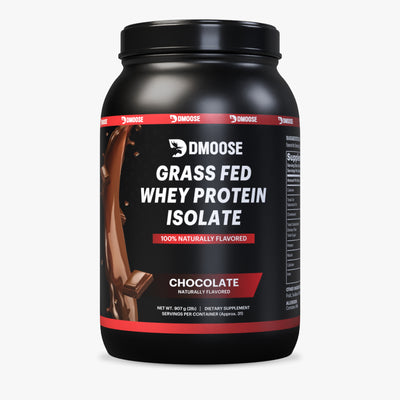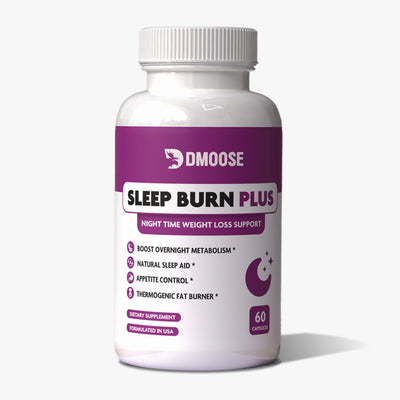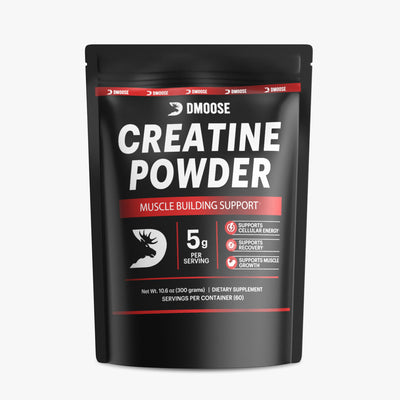The Mediterranean-DASH Intervention for Neurodegenerative Delay (MIND) diet is a recently developed eating plan that improves brain health and protects against cognitive decline. The MIND diet combines the Mediterranean diet and the DASH diet, two well-studied diets that are beneficial for overall health.
The MIND diet is relatively new, but it has quickly become popular due to its potential to promote better brain health. If you are interested in trying the MIND diet, here is a 7-day guide to help you get started.
Understanding the MIND Diet
Just like we take care of our physical appearance by exercising and limiting junk and unhealthy foods, it is essential to take care of our mental health. Now, you must be taking care of your mental health by performing mental exercises and indulging in thought-provoking activities, but there is more that you can do for your cognitive health by following the MIND diet.
MIND is an acronym for Mediterranean Intervention for Neurodegenerative Delay. The word the Mediterranean in MIND diet represents countries near the Mediterranean like Greece, Italy, etc. It incorporates their specific food culture, like eating grains, vegetables, nuts, poultry, etc.
This diet plan is combined with the DASH diet, which stands for Dietary Approaches to Stop Hypertension. Like the MIND diet, the DASH diet also adds more fruits, vegetables and whole-grain items to your everyday diet.
With so much happening in our lives and poor living habits, our minds get severely affected in ways that we don't even know. Having problems like shorter attention span, getting distracted frequently, recurrently forgetting little things etc., seem to be minor problems and are usually shrugged because of our active lifestyles.
These minor problems tend to grow bigger with time and lead to severe illnesses like Alzheimer's. Over the years, research has shown that Alzheimer's disease is the sixth most common cause of death and a leading cause of cognitive decline; therefore must be adequately addressed.
Health Benefits of the MIND Diet
The MIND diet is a great way to improve your overall health and protect your brain from disease. It's easy to follow, and plenty of recipes and meal plans are available online. So why not give it a try?
Enhances Brain Health
The MIND diet has been thoughtfully curated to improve brain health. The combination of nutrients and foods in this diet has been found to protect the brain from damage and reduce the risk of developing Alzheimer's disease or other forms of dementia.
According to research, this diet reduces your risk of Alzheimer's disease by 53% to 35%. It helps lower the risks of cardiovascular disease, diabetes, depression and even aids in weight loss given the limited calorie consumption and various other benefits.
Related Article: Mental Fatigue: What It is and How to Overcome the Symptoms
Controls Inflammation
Inflammation is a significant contributor to many diseases, including heart disease, stroke, and Alzheimer's. The MIND diet has been found to reduce inflammation in the body, leading to a healthier overall body.
Although people can't change certain risk factors such as age and genes, they can modify others, including exercise, cognitive training, and nutrition. According to a 2019 study, particular diets that contain anti-inflammatory and antioxidant chemicals help protect the brain because of their anti-inflammatory and antioxidant effects.
Reduces the Risk of Developing Diabetes
The MIND diet has also been found to help reduce the risk of developing diabetes. The combination of healthy foods and nutrients in the diet helps control blood sugar levels, which can prevent the development of diabetes.
Rich in Antioxidants
Antioxidants are essential for overall health, but they are crucial for brain health. The MIND diet is rich in antioxidants, which can help protect the brain from damage and improve cognitive function.
Improves Cardiovascular Health
The MIND diet, which emphasizes fruit and green leafy vegetables while restricting calories from animal-based foods and saturated fat, improved left ventricular function, responsible for transporting oxygenated blood throughout the body.
The combination of healthy fats, proteins, and nutrients in the diet help in various aspects, such as to lower cholesterol and blood pressure, which can reduce the risk of developing heart disease or having a stroke.
Related Article: 5 Risk Factors of Cardiovascular Diseases & How to Prevent It
Foods to Eat on the MIND Diet
The following foods are all part of the MIND diet and are recommended for inclusion in your daily diet.
Vegetables
Vegetables are essential in every healthy diet, and the MIND diet is no exception. Cruciferous vegetables like broccoli, cauliflower, and cabbage are incredibly beneficial as they contain compounds that improve brain health. Other vegetables part of the MIND diet includes kale, spinach, carrots, tomatoes, and peppers.
Fruits
Like vegetables, fruits are a crucial part of a healthy diet, and the MIND diet is no exception. Berries, in particular, are beneficial for brain health as they are rich in antioxidants. Other fruits in the MIND diet include oranges, apples, and bananas.
Nuts and Seeds
Nuts and seeds are great when it comes to consuming healthy fats, proteins, and nutrients. They can also help improve brain health by providing essential fatty acids and antioxidants. Nuts and seeds are a part of the MIND diet, it includes walnuts, almonds, sunflower seeds, and flaxseeds.
Whole Grains
Whole grains are an essential part of the MIND diet as they are a good source of fibre, vitamins, and minerals. Whole grains can also help improve brain health by providing essential nutrients like vitamin E and magnesium. Whole grains of the MIND diet include oats, quinoa, and whole-wheat bread.
Fish
Fish contains protein, healthy fats, and omega-3 fatty acids. Omega-3 fatty acids are essential for brain health, and they can also improve cognitive functions. The fish part of the MIND diet includes salmon, tuna, mackerel, and herring.
Related Article: Omega 3 Vs Omega-3-6-9: What Do the Experts Say?
Poultry
Poultry is a good source of protein and healthy fats. It can also improve brain health by providing essential nutrients like protein, zinc and iron. The poultry part of the MIND diet includes chicken, turkey, and duck.
Beans
Beans are a good source of fibre, vitamins, and minerals. They can also help improve brain health by providing essential nutrients like folate and magnesium. Beans part of the MIND diet include black beans, lentils, and chickpeas.
Foods to Avoid on the MIND Diet
Even though it is recommended to cover as many food groups in your diet as possible, there are still some food items that must be avoided or at least reduced to a bare minimum when following a MIND diet.
Butter and Margarine
It is recommended that when following the MIND diet, an individual must consume little to no butter/margarine and substitute it with olive oil along with other herbs.
Both butter and margarine are high in saturated and trans fats, which raises the bad cholesterol level. This leads to cholesterol building up in the arteries and causing hindrance in the blood pumping system, leading to heart attack and various other heart diseases.
Red Meat
Red meat such as pork, beef, lamb and other products made from these meats have shown a clear link between high red meat consumption and heart diseases, cancer, diabetes and premature deaths.
MIND diet suggests a maximum of three servings should be consumed of red meat or its products throughout the week to reduce such health dangers.
Fried Food
The MIND diet or any other healthy lifestyle choice is highly against consuming fried food, specifically fast-food items.
These fast-food and deep-fried items contain high amounts of saturated and trans fats, which leads to poor heart health and ultimately affects cognitive and brain health amongst the individuals.
Related Article: Junk Food Makes You Miserable - It’s Time to Ditch Junk Food
Pastries and Sweets
Pastries and sweets of all kinds; donuts, ice creams, candy, cookies, brownies and many more are strictly limited to no more than four times a week.
This limitation is because all the sweets and pastries are high in refined sugar, refined flour, trans fats, artificial ingredients, and other harmful chemicals and substances. Consuming them in your diet frequently will not only damage your physical health but will slow down your mental capabilities, which no one wants to suffer from.
Meal Plan for 7 Day
Here is a meal plan for 7 days on the MIND diet. This meal plan includes all recommended foods and excludes all avoidance foods.
Monday (Total Calories: 1202)
Breakfast (292 calories)
- 1 cup nonfat plain Greek yogurt
- 1/4 cup blackberries
- 3 Tbsp. chopped walnuts
A.M. Snack (32 calories)
- 1/2 cup raspberries
Lunch (325 calories)
- 1 Veggie & Hummus Sandwich (2 whole wheat slices, 3 tbsp hummus and 1 cup of vegetables)
P.M. Snack (131 calories)
- 1 large pear
Dinner (422 calories)
- 113gm of salmon with 1 and ½ cups of vegetables
Tuesday (Total Calories: 1224)
Breakfast (231 calories)
- ⅔ cup cinnamon roll overnight oats
- 1 clementine
A.M. Snack (66 calories)
- 1/2 cup non-fat plain Greek yogurt
Lunch (381 calories)
- 1 serving vegan superfood buddha bowls ( ½ cup quinoa, ½ cup hummus, 28gm of baby kale, ½ cup cooked baby beets, ¼ cup frozen shelled edamame, thawed, ¼ medium avocado, sliced 1 tbsp unsalted toasted sunflower seeds)
P.M. Snack (62 calories)
- 1 medium orange
Dinner (484 calories)
- 1 slice vegetarian spring egg casserole
- 2 cups mixed greens
- 1/2 avocado, sliced
- 1 tbsp garlic-dijon vinaigrette
Wednesday (Total Calories: 1199)
Breakfast (231 calories)
- ⅔ cup cinnamon roll overnight oats
- 1 clementine
A.M. Snack (66 calories)
- 1/2 cup nonfat plain Greek yogurt
Lunch (381 calories)
- 1 serving vegan superfood buddha bowls ( ½ cup quinoa, ½ cup hummus, 28gm of baby kale, ½ cup cooked baby beets, ¼ cup frozen shelled edamame, thawed, ¼ medium avocado, sliced 1 tbsp unsalted toasted sunflower seeds)
P.M. Snack (37 calories)
- 1 medium bell pepper, sliced
Dinner (484 calories)
- 1 slice vegetarian spring egg casserole
- 2 cups mixed greens
- 1/2 avocado, sliced
- 1 tbsp garlic-dijon vinaigrette
Thursday (Total Calories: 1208)
Breakfast (231 calories)
- ⅔ cup cinnamon roll overnight oats
- 1 clementine
A.M. Snack (170 calories)
- 22 unsalted dry-roasted almonds
Lunch (381 calories)
- 1 serving vegan superfood buddha bowls ( ½ cup quinoa, ½ cup hummus, 28gm of baby kale, ½ cup cooked baby beets, ¼ cup frozen shelled edamame, thawed, ¼ medium avocado, sliced 1 tbsp unsalted toasted sunflower seeds)
P.M. Snack (66 calories)
- 1/2 cup nonfat plain Greek yogurt
Dinner (360 calories)
- 4 cups of White Bean & Veggie Salad (2 cups mixed salad greens, ¾ cup veggies of your choice, such as chopped cucumbers and cherry tomatoes, ⅓ cup canned white beans, rinsed and drained,½ avocado, diced, 1 tbsp red wine vinegar, 2 tsp extra-virgin olive oil)
Friday (Total Calories: 1204)
Breakfast (231 calories)
- ⅔ cup cinnamon roll overnight oats
- 1 clementine
A.M. Snack (95 calories)
- 1 medium apple
Lunch (381 calories)
- 1 serving vegan superfood buddha bowls ( ½ cup quinoa, ½ cup hummus, 28gm of baby kale, ½ cup cooked baby beets, ¼ cup frozen shelled edamame, thawed, ¼ medium avocado, sliced 1 tbsp unsalted toasted sunflower seeds)
P.M. Snack (35 calories)
- 1 clementine
Dinner (462 calories)
- 2 cups of summer shrimp salad (10-15 raw shrimp, peeled and deveined, 2 tbsp extra-virgin olive oil, 5 sprigs fresh thyme, 2 cloves garlic, crushed, salt and ground pepper to taste, 2 tbsp lemon juice, ½ medium English cucumber, diced, 1 and ½ large heirloom tomatoes, chopped, ¼ cup chopped fresh basil, plus more for garnish)
- 1 toast of everything bagel avocado toast (¼ medium avocado, mashed, 1 slice whole-grain bread, toasted, 2 tsp everything bagel seasoning)
Saturday (Total Calories: 1200)
Breakfast (231 calories)
- ⅔ cup cinnamon roll overnight oats
- 1 clementine
A.M. Snack (66 calories)
- 1/2 cup nonfat plain Greek yogurt
Lunch (325 calories)
- 1 Veggie & Hummus Sandwich (2 whole wheat slices, 3 tbsp hummus and 1 cup of vegetables)
P.M. Snack (106 calories)
- 1 large apple
Dinner (472 calories)
- 1 stuffed sweet potato with hummus dressing (1 large sweet potato, scrubbed, ¾ cup chopped kale, 1 cup canned black beans, rinsed, ¼ cup hummus, 2 tablespoons water)
Sunday (Total Calories: 1203)
Breakfast (292 calories)
- 1 cup nonfat plain Greek yogurt
- 1/4 cup blackberries
- 3 Tbsp. chopped walnuts
A.M. Snack (95 calories)
- 1 medium apple
Lunch (325 calories)
- 1 Veggie & Hummus Sandwich (2 whole wheat slices, 3 tbsp hummus and 1 cup of vegetables)
P.M. Snack (35 calories)
- 1 clementine
Dinner (456 calories)
- 2 cups of Strawberry Poppy Seed Salad with Chicken (2 cups mixed salad greens, ½ cup diced cooked chicken, 2 large strawberries, hulled and sliced, 1 tbsp goat cheese, crumbled (2 tbsp) 1 and ½ tbsp poppy seed dressing)
- 1 toast of everything bagel avocado toast (¼ medium avocado, mashed, 1 slice whole-grain bread, toasted, 2 tsp everything bagel seasoning)
Conclusion
The MIND diet is a great way to improve brain health. The diet includes plenty of healthy foods like fish, poultry, beans, and whole grains while excluding unhealthy foods like saturated fats, trans fats, refined carbs etc.
According to us the best part about the MIND diet is that even if you fail to follow the diet plan and abide by the limitations, the diet will never fail you. Research has shown that even following a diet in a moderate amount can help you to reduce your risk of Alzheimer's.
Reading List
Article Sources
- ‘2021 Alzheimer’s Disease Facts and Figures’. Alzheimer’s & Dementia: The Journal of the Alzheimer’s Association, vol. 17, no. 3, Mar. 2021, pp. 327–406. PubMed, https://doi.org/10.1002/alz.12328.
- Corley, Janie. ‘Adherence to the MIND Diet Is Associated with 12-Year All-Cause Mortality in Older Adults’. Public Health Nutrition, vol. 25, no. 2, Feb. 2022, pp. 358–67. Cambridge University Press, https://doi.org/10.1017/S1368980020002979.
- de Crom, Tosca O. E., et al. ‘MIND Diet and the Risk of Dementia: A Population-Based Study’. Alzheimer’s Research & Therapy, vol. 14, no. 1, Jan. 2022, p. 8. BioMed Central, https://doi.org/10.1186/s13195-022-00957-1.
- Devore, Elizabeth E., et al. ‘Dietary Intake of Berries and Flavonoids in Relation to Cognitive Decline’. Annals of Neurology, vol. 72, no. 1, July 2012, p. 135. www.ncbi.nlm.nih.gov, https://doi.org/10.1002/ana.23594.
- Holt, Erica M., et al. ‘Fruit and Vegetable Consumption and Its Relation to Markers of Inflammation and Oxidative Stress in Adolescents’. Journal of the American Dietetic Association, vol. 109, no. 3, Mar. 2009, p. 414. www.ncbi.nlm.nih.gov, https://doi.org/10.1016/j.jada.2008.11.036.
- Loef, M., and H. Walach. ‘Fruit, Vegetables and Prevention of Cognitive Decline or Dementia: A Systematic Review of Cohort Studies’. The Journal of Nutrition, Health & Aging, vol. 16, no. 7, July 2012, pp. 626–30. PubMed, https://doi.org/10.1007/s12603-012-0097-x.
- McGrattan, Andrea M., et al. ‘Diet and Inflammation in Cognitive Ageing and Alzheimer’s Disease’. Current Nutrition Reports, vol. 8, no. 2, 2019, p. 53. www.ncbi.nlm.nih.gov, https://doi.org/10.1007/s13668-019-0271-4.
- Morris, Martha Clare, Denis A. Evans, et al. ‘Dietary Fats and the Risk of Incident Alzheimer Disease’. Archives of Neurology, vol. 60, no. 2, Feb. 2003, pp. 194–200. PubMed, https://doi.org/10.1001/archneur.60.2.194.
- Morris, Martha Clare, Christy C. Tangney, Yamin Wang, Frank M. Sacks, David A. Bennett, et al. ‘MIND Diet Associated with Reduced Incidence of Alzheimer’s Disease’. Alzheimer’s & Dementia : The Journal of the Alzheimer’s Association, vol. 11, no. 9, Sept. 2015, p. 1007. www.ncbi.nlm.nih.gov, https://doi.org/10.1016/j.jalz.2014.11.009.
- Morris, Martha Clare, Christy C. Tangney, Yamin Wang, Frank M. Sacks, Lisa L. Barnes, et al. ‘MIND Diet Slows Cognitive Decline with Aging’. Alzheimer’s & Dementia: The Journal of the Alzheimer’s Association, vol. 11, no. 9, Sept. 2015, pp. 1015–22. PubMed, https://doi.org/10.1016/j.jalz.2015.04.011.
- Mozaffarian, Dariush, et al. ‘Trans Fatty Acids and Cardiovascular Disease’. The New England Journal of Medicine, vol. 354, no. 15, Apr. 2006, pp. 1601–13. PubMed, https://doi.org/10.1056/NEJMra054035.
- Salas-Salvadó, Jordi, et al. ‘Reduction in the Incidence of Type 2 Diabetes with the Mediterranean Diet: Results of the PREDIMED-Reus Nutrition Intervention Randomized Trial’. Diabetes Care, vol. 34, no. 1, Jan. 2011, pp. 14–19. PubMed, https://doi.org/10.2337/dc10-1288.
- Saneei, P., et al. ‘Influence of Dietary Approaches to Stop Hypertension (DASH) Diet on Blood Pressure: A Systematic Review and Meta-Analysis on Randomized Controlled Trials’. Nutrition, Metabolism, and Cardiovascular Diseases: NMCD, vol. 24, no. 12, Dec. 2014, pp. 1253–61. PubMed, https://doi.org/10.1016/j.numecd.2014.06.008.
- Sofi, Francesco, et al. ‘Accruing Evidence on Benefits of Adherence to the Mediterranean Diet on Health: An Updated Systematic Review and Meta-Analysis’. The American Journal of Clinical Nutrition, vol. 92, no. 5, Nov. 2010, pp. 1189–96. PubMed, https://doi.org/10.3945/ajcn.2010.29673.
- Willis, Lauren M., et al. ‘Recent Advances in Berry Supplementation and Age-Related Cognitive Decline’. Current Opinion in Clinical Nutrition and Metabolic Care, vol. 12, no. 1, Jan. 2009, pp. 91–94. PubMed, https://doi.org/10.1097/MCO.0b013e32831b9c6e.
- Marcason, W. (2015). What Are the Components to the MIND Diet? Journal of the Academy of Nutrition and Dietetics, 115(10), 1744. https://www.jandonline.org/article/S2212-2672%2815%2901251-4/pdf
- Wolk, A. ‘Potential Health Hazards of Eating Red Meat’. Journal of Internal Medicine, vol. 281, no. 2, Feb. 2017, pp. 106–22. DOI.org (Crossref), https://doi.org/10.1111/joim.12543.











